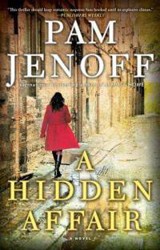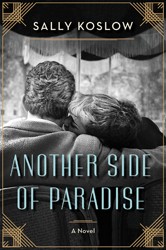Mystery, mayhem, and murder are all set in motion in The Mystery of the Milton Manuscript. Paradise Lost, John Milton’s renowned epic poem, recounts the story of Adam and Eve’s expulsion from the Garden of Eden. The poem seeks to answer how one justifies the ways of God’s work to man. The fictional controversial Milton Manuscript, written to explain the meaning of his poem, is surrounded by death, horror, and intrigue.
Keith Jessup, a Rhodes Scholar and Ph.D. candidate at Oxford, finds himself caught up in a religious conspiracy when his beloved friend and mentor is murdered before he can deliver a lecture on Milton’s interpretation of Paradise Lost. More scholars involved with the Milton Manuscript are also heinously killed and facial markings and stigmata appear on the dead bodies. Jessup takes up their crusade. He attempts to solve their murders, find the original Milton Manuscript, and understand the true meaning behind Paradise Lost.
Keith’s quest takes him to the great libraries of Oxford, Cambridge, Sheffield, and New York. He is involved in foreign intrigue in Zurich, Hong Kong, the New York art scene, and Harvard. Robberies, mysterious phone calls, death threats, chase scenes, disguises, sniper attacks, and art forgeries round out the movie script type action. Jessup’s world is populated by art experts and dealers, hired killers, police, forensic detectives, doctors, rabbis, and fellow scholars as well as the requisite romantic interest.
Keith must find an answer to the Milton Manuscript mystery before he is to deliver the esteemed Tanzer Lecture at Harvard. A countdown calendar lecture date at the beginning of each chapter effectively adds to the suspense. The action is presented in short, fast-paced chapters, reminiscent of The Da Vinci Code genre, that keeps the reader engrossed.
If one is unfamiliar with Paradise Lost, do not fear! Libin packs his novel with a bevy of information, explanations, mini lectures, synopses, scholarly debates, and actual stanzas that will practically induct the reader into the International Milton Society. While delivering this education, Libin also provides a dossier on Milton, the man, and his times. There is plentiful historical background information on the seventeenth century English political and religious turmoil Milton found himself caught up in. We learn that Milton was an independent thinker who was willing to challenge authority and fearless in searching for intellectual truth and extolling personal liberties.
The story explores the importance of Paradise Lost to Christendom, but also presents interesting aspects of the poem that account for Milton’s knowledge and understanding of Mosaic Law and Hebraic texts.
Although the many characters are not often fully developed and some plot incidents and narrative turns seem contrived, this book delivers a suspenseful, enjoyable, and intellectually stimulating read.
Related content:
Renita Last is a member of the Nassau Region of Hadassah’s Executive Board. She has coordinated the Film Forum Series for the Region and served as Programming and Health Coordinators and as a member of the Advocacy Committee.
She has volunteered as a docent at the Holocaust Memorial and Tolerance Center of Nassau County teaching the all- important lessons of the Holocaust and tolerance. A retired teacher of the Gifted and Talented, she loves participating in book clubs and writing projects.





